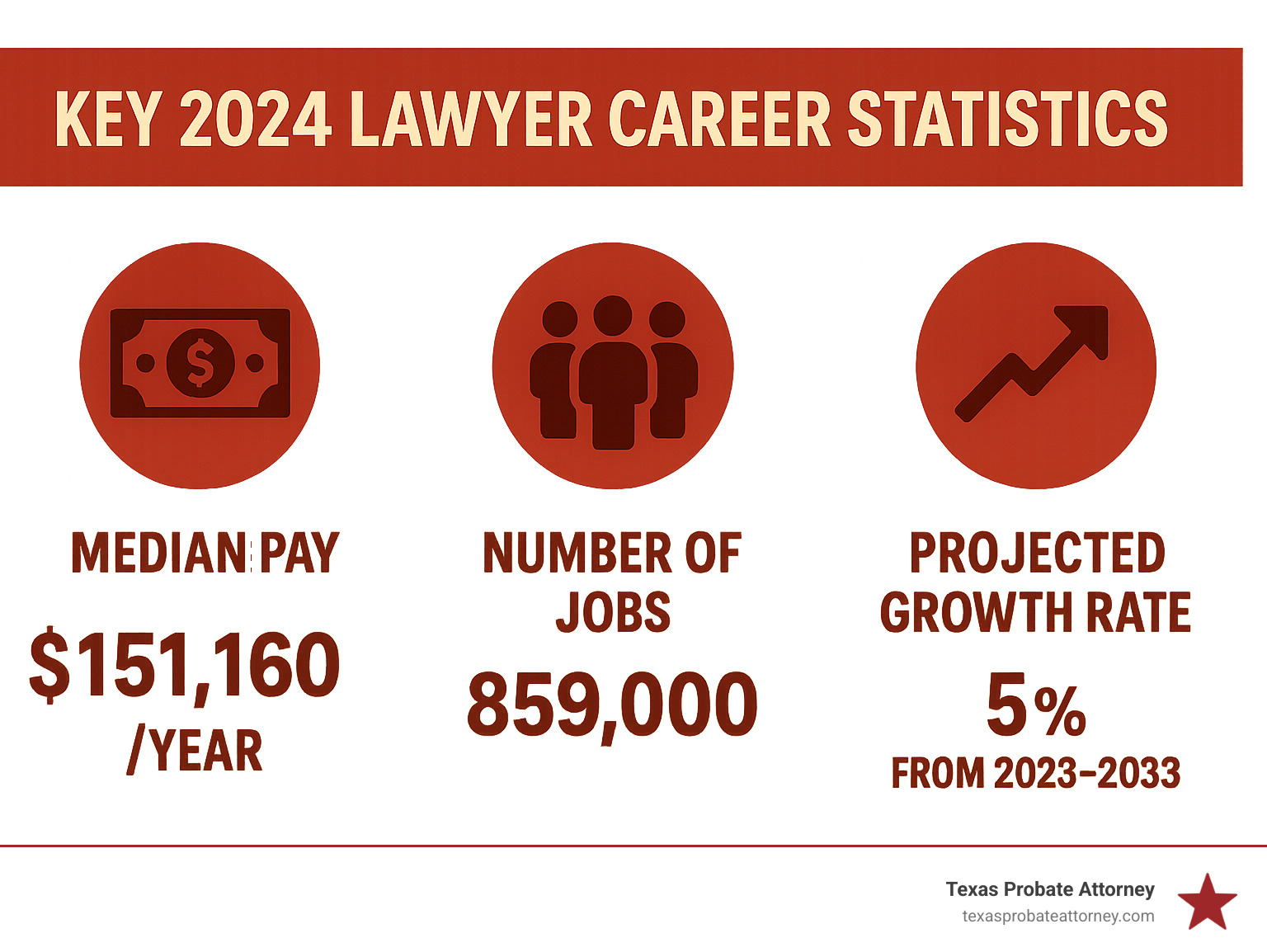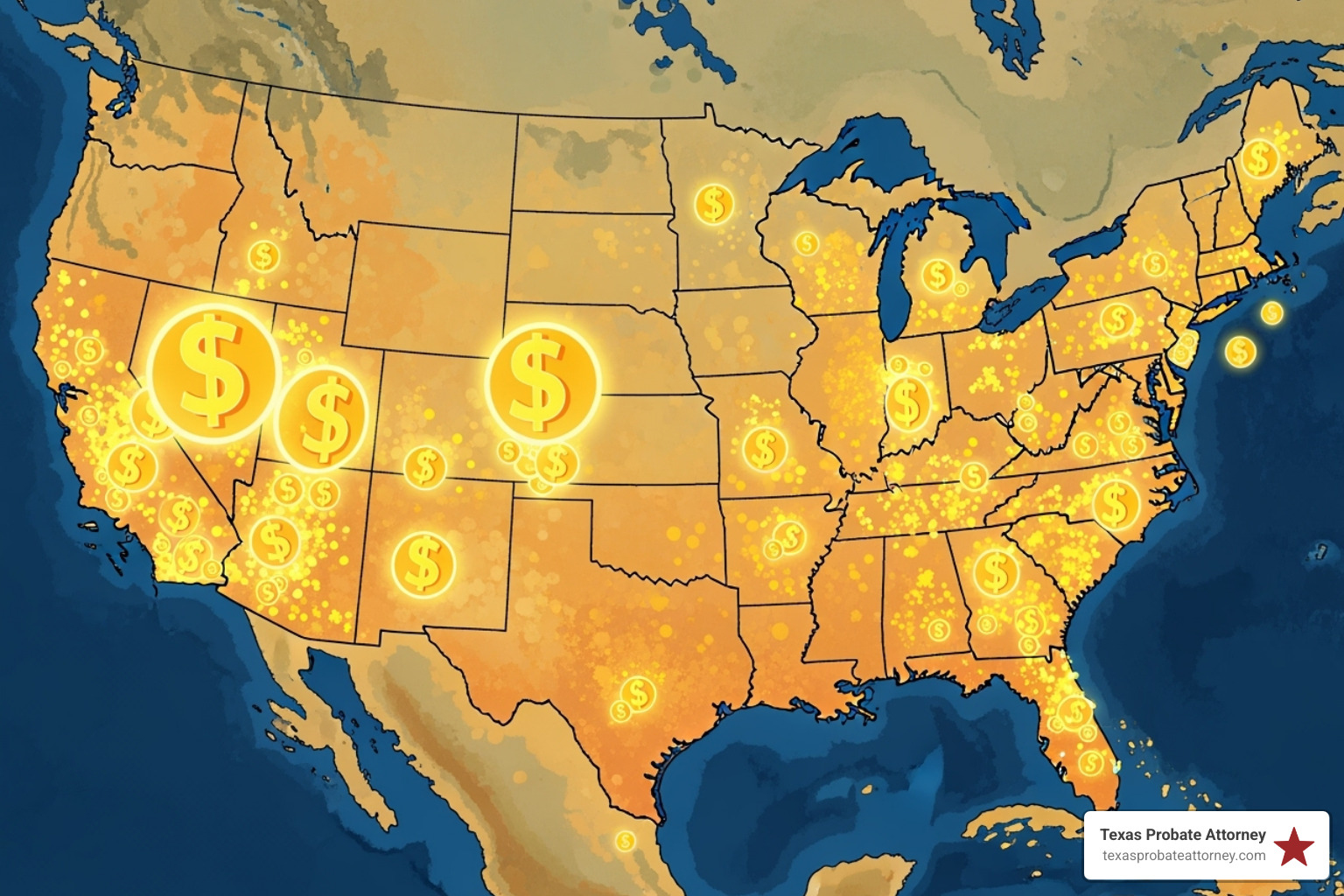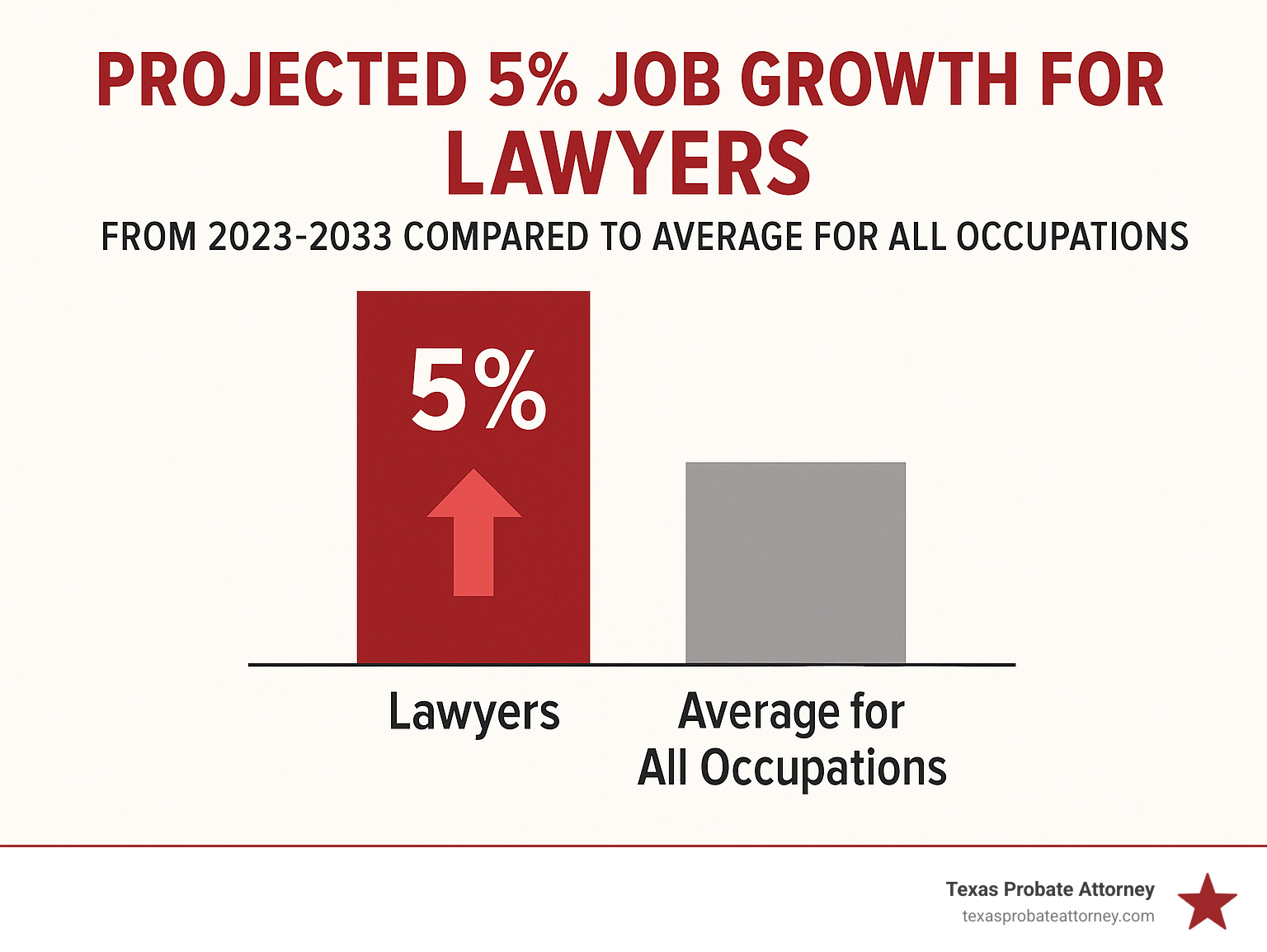Crunching the Numbers on Lawyer Careers with BLS Data
Understanding the BLS Lawyer Landscape
If you’re trying to understand the career outlook for a bls lawyer, you’re looking for information from a very important source. Many people wonder if “BLS” refers to a specific law firm. Here’s a quick answer:
- BLS in “bls lawyer” mostly means the Bureau of Labor Statistics. This is the main U.S. government agency that tracks jobs, wages, and employment trends.
- They provide reliable data on what lawyers do, how much they earn, and how many jobs are available.
- While a law firm named Bridging Legal Solutions (BLS) does exist, the common search for “bls lawyer” is usually about job statistics from the Bureau of Labor Statistics.
This guide will help you make sense of the facts and figures. We will break down the latest data on lawyer employment and wages in the U.S. This information can help you understand the legal field better, whether you are planning a career or just seeking reliable facts.
The National Landscape: Lawyer Employment and Wages According to the BLS
When you’re considering a legal career, you want the real story behind the headlines. The bls lawyer data from the Bureau of Labor Statistics gives us exactly that—a clear, unvarnished look at what’s happening in America’s legal profession right now.
The numbers tell an interesting story. As of 2023, lawyers held approximately 859,000 jobs across the United States. That’s a substantial workforce, and it’s more diverse than you might think. While many people picture lawyers working in traditional law firms, the reality is much more varied.
The legal services industry remains the heavyweight champion, employing about 52% of all lawyers in 2023. But here’s what’s fascinating: 13% of lawyers are self-employed, carving out their own paths as solo practitioners or small firm owners. Government work also plays a significant role, with local government employing 7%, state government 6%, and the federal government 5% of all lawyers.
Lawyer Salaries: A Closer Look at the Numbers
Let’s talk about the question everyone’s thinking: How much do lawyers really make? The bls lawyer statistics show that the median annual wage for lawyers was $151,160 in May 2024. If you prefer looking at averages, the mean annual wage was $176,470 in May 2023.
But here’s the reality check—there’s a wide range in earnings. The lowest 10 percent of lawyers earned less than $72,780 annually, while the highest 10 percent brought in more than $239,200. That’s quite a spread, isn’t it?
This variation makes sense when you consider all the factors at play. Your location matters. Your area of practice matters. The size of your firm matters. Your years of experience definitely matter. Even within specializations, there can be significant differences in earning potential.
For those who love diving deep into data, the Occupational Employment and Wage Statistics (OEWS) Profiles offer detailed percentile wage estimates. It’s like getting a behind-the-scenes look at how lawyer salaries are distributed across the entire profession.
Employment Snapshot for Lawyers
The legal services industry isn’t just the biggest employer—it’s also a solid place to earn a living. In May 2023, this sector employed 445,110 lawyers with a mean annual wage of $182,020. These numbers show that traditional law firms and legal practices remain the backbone of the profession.
But the legal world is constantly evolving. In our own practice, we see how different specializations create their own unique employment patterns. Areas like fiduciary litigation require lawyers who can handle complex financial and ethical responsibilities—skills that are increasingly valuable in today’s legal marketplace.
The beauty of the legal profession lies in its diversity. Whether you’re drawn to government service, corporate law, solo practice, or specialized areas like probate and estate planning, there are paths available. The bls lawyer data confirms that this variety isn’t just theoretical—it’s reflected in real employment numbers across the country.
Where the Jobs Are: Top Industries and Geographic Hotspots
The legal profession isn’t just confined to major cities or traditional law firms. While these are certainly hubs, the BLS data reveals some surprising top-paying industries and geographic areas where lawyers thrive. It’s not always about sheer volume; sometimes, it’s about niche demand or a unique economic environment.
Highest Paying Industries for Legal Professionals
Here’s where the data gets really interesting. While the legal services industry provides the most jobs, it’s not always where the biggest paychecks are. The highest-paying industry for lawyers in May 2023 was actually Water, Sewage and Other Systems, with a jaw-dropping mean annual wage of $315,000. Yes, you read that right – utility law can be incredibly lucrative!
This might seem surprising, but it makes perfect sense when you think about it. These highly regulated, infrastructure-critical sectors need top-notch legal counsel to handle complex compliance issues, environmental regulations, and public policy matters. The specialized knowledge required commands premium compensation.
The Legal Services industry, while not the absolute highest payer, still offers solid compensation with competitive wages across the board. Federal government positions provide stability and good pay, often with excellent benefits packages. Many lawyers also find rewarding careers as Corporate counsel, where they handle in-house legal matters for businesses across various sectors.
For those interested in diving deeper into the numbers, you can view industry-specific wage data directly from the BLS to see how different sectors stack up.
Geographic Profile: States and Cities with the Best Opportunities
Location can make or break your legal career – both in terms of opportunities and earning potential. Some states are absolute magnets for legal talent, offering both plenty of jobs and impressive paychecks.
When it comes to sheer numbers of legal jobs, California leads the nation with 94,300 lawyers, followed by New York with 86,000 and Florida with 61,320. Here in Texas, we have a robust legal market with 45,950 lawyers earning a mean annual wage of $177,890 as of May 2023. That’s a testament to our state’s diverse economy and growing population.
But if you’re chasing the highest salaries, the District of Columbia takes the crown. Lawyers there earned an annual mean wage of $238,990 in May 2023. This makes sense given D.C.’s unique role as the nation’s capital, with its concentration of federal agencies, lobbying firms, and policy organizations.
At the metropolitan level, San Jose-Sunnyvale-Santa Clara, CA offered the highest compensation in May 2023, with an annual mean wage of $268,570. Silicon Valley’s tech boom has created enormous demand for legal services, driving up wages accordingly.
Closer to home, the Dallas-Fort Worth-Arlington metropolitan area employed 14,720 lawyers with a mean annual wage of $188,350, showing that Texas cities can compete with coastal markets for legal talent. Whether you’re interested in corporate law, real estate, or specialized areas like estate planning, Texas offers competitive opportunities without the sky-high cost of living found in some other major markets.
For a complete breakdown of employment and wages by state and metropolitan area, you can explore state and area data for lawyers on the BLS website. It’s fascinating to see how legal markets vary across the country and what drives compensation in different regions.
The Path to Practice: A Lawyer’s Journey from Education to Daily Duties
Thinking about becoming a bls lawyer? The journey to joining the legal profession is well-mapped out, though it requires serious commitment and a genuine love for solving complex problems. Let’s walk through what it actually takes to hang up that shingle.
Education and Licensing: Becoming a Lawyer
The road to becoming a lawyer starts with earning a four-year undergraduate degree. Here’s the good news: you don’t need to major in anything specific! While some students choose pre-law or political science, others come from backgrounds in business, English, or even engineering. The key is developing strong analytical and writing skills.
Next comes law school, where you’ll spend three years earning your Juris Doctor (J.D.) degree. But not just any law school will do. You’ll want to attend one accredited by the American Bar Association (ABA), as this accreditation is required by most state bar associations. Getting into law school typically means taking the Law School Admission Test (LSAT), which tests your logical reasoning and reading comprehension skills.
Once you have that shiny J.D. in hand, you’re not quite ready to practice yet. Every state requires lawyers to pass the state bar examination, a comprehensive test that covers various areas of law. But it’s not just about knowing the law—you’ll also need to meet “character and fitness” requirements, which involve a thorough background check to ensure you’re ethically fit to practice. The National Conference of Bar Examiners (NCBE) develops and coordinates these bar exams across the country.
Even after passing the bar, the learning never stops. Lawyers must complete continuing legal education (CLE) credits regularly to maintain their license. It’s all about staying current with new laws, court decisions, and best practices. Think of it as professional tune-ups to keep your legal engine running smoothly.
A Day in the Life: Duties and Specializations
So what does a lawyer actually do day-to-day? The beauty of this profession is its incredible variety. At its heart, lawyers advocate for clients and advise businesses and individuals on their legal rights and responsibilities. This might mean representing someone in court, negotiating a business deal, or helping a family plan their estate.
Much of a lawyer’s time involves research and analysis—digging deep into case law, statutes, and regulations to build the strongest possible argument. They spend considerable time drafting legal documents, from simple contracts to complex litigation briefs. Every word matters in the legal world, so precision is key.
The legal profession offers amazing opportunities for specialization. Some lawyers focus on environmental law, helping companies steer complex regulations. Others dive into tax law, becoming masters of the ever-changing tax code. In our practice, we’ve chosen to focus on probate, trust, and estate planning litigation. This means we help families steer the often emotional and complex process of settling estates, resolving trust disputes, and planning for the future.
Commercial litigation is another fascinating area where lawyers help businesses resolve disputes. Whether it’s a contract disagreement or a partnership dispute, these lawyers become skilled at understanding both the legal and business sides of conflicts. If you’re curious about this field, you can learn more about What is Commercial Litigation?.
For business owners, proper planning is crucial for protecting everything they’ve built. Estate Planning for Business Owners involves creating strategies that protect assets and ensure their vision continues for generations. It’s deeply rewarding work that combines legal knowledge with genuine care for families and their legacies.
The path to becoming a bls lawyer isn’t easy, but for those drawn to advocacy, problem-solving, and making a real difference in people’s lives, it can be incredibly fulfilling. Each specialization offers its own unique challenges and rewards, making the legal profession as diverse as it is dynamic.
The Future Outlook for the Legal Profession: A BLS Lawyer Perspective
What does the future hold for aspiring lawyers? If you’re considering joining the ranks of legal professionals, the Bureau of Labor Statistics offers some valuable insights into what lies ahead. The legal profession continues to evolve, shaped by technology, economic changes, and shifting client needs.
Understanding the BLS Lawyer Job Growth Projections
The numbers paint a cautiously optimistic picture. The BLS projects that employment of lawyers will grow 5 percent from 2023 to 2033, which is about as fast as the average for all occupations. While that might not sound like explosive growth, it translates into real opportunities.
Here’s what those numbers mean in practical terms: approximately 35,600 openings for lawyers each year over the next decade. These openings include both brand-new positions and jobs that become available when lawyers retire or change careers. The total employment change is projected to be 44,200 jobs between 2023 and 2033.
What’s driving this steady demand? Simply put, legal work isn’t going anywhere. Businesses still need contracts reviewed, families still need estate planning, and disputes still need resolution. Every new regulation, every business transaction, every family milestone creates opportunities for legal professionals.
However, the landscape is shifting. The BLS notes several factors that could influence future employment trends. Price competition within the legal services industry means clients are increasingly cost-conscious. More corporations are building in-house legal departments rather than outsourcing everything to law firms. And yes, automation is making its mark, handling some routine legal tasks that once required human hands.
For those who want to dig deeper into the projections, you can explore the detailed projection data directly from the BLS.
The Reality Check for a New BLS Lawyer
Now for the sobering truth that every prospective bls lawyer needs to hear: the legal job market is competitive. Very competitive.
While the BLS projects about 35,600 job openings annually, U.S. law schools graduate roughly the same number of students each year—sometimes more. Recent estimates suggest law schools produce between 32,000 and 44,000 new J.D. holders annually. The math is pretty straightforward, and it doesn’t always add up in favor of new graduates.
| Metric | Projected Annual Openings (2023-2033) | Annual Law School Graduates (Approx.) |
|---|---|---|
| Lawyer Jobs | 35,600 | 32,000 – 44,000 |
This creates what the BLS diplomatically calls “strong competition” for positions. But let’s be honest—it can feel brutal for new graduates carrying an average of $150,000 in student loan debt.
Many graduates find themselves in “JD Advantage” jobs, where their legal education is valuable but they’re not practicing law in the traditional sense. Others find that the legal profession can have an “up or out” culture, particularly in large firms, where associates face pressure to advance quickly or find opportunities elsewhere.
This reality makes strategic planning absolutely crucial. Networking isn’t just helpful—it’s essential. Gaining practical experience through internships can set you apart. And sometimes, understanding the business side of law, including issues like How to Get Out of a Non-Compete, becomes part of your professional toolkit.
The key takeaway? A legal career can be incredibly rewarding, both personally and financially. But success requires more than just passing the bar exam. It demands smart choices, persistence, and a clear understanding of the competitive landscape you’re entering.
Frequently Asked Questions about Lawyer Career Data
We get a lot of questions about the legal profession, especially when people are trying to make sense of all the statistics and data out there. Let’s tackle some of the most common ones that come up when folks are researching career paths.
What does “BLS” mean in the context of “bls lawyer”?
Here’s something that trips people up all the time! When you search for “bls lawyer,” you’re almost certainly looking for information from the U.S. Bureau of Labor Statistics. This is the main federal agency that keeps track of jobs, wages, and employment trends across the country. They’re the folks who crunch all those numbers we’ve been discussing throughout this guide.
Now, you might occasionally run into a law firm that uses “BLS” in their name – like Bridging Legal Solutions or something similar. But let’s be honest, when most people type “bls lawyer” into Google, they’re not hunting for a specific firm. They want the official government data about lawyer careers, salaries, and job prospects. It’s all about getting the reliable, unbiased statistics that can help you make informed decisions about your future.
Is becoming a lawyer a good career based on BLS data?
This is the million-dollar question, isn’t it? Well, based on the BLS data, becoming a lawyer definitely has some serious perks. That median salary of $151,160 we talked about earlier? That’s significantly higher than most other professions. We’re talking about real earning potential here.
But here’s where it gets interesting (and a bit sobering). The same data shows us that competition is fierce. Remember those numbers we looked at? Law schools are graduating roughly the same number of students each year as there are job openings. Sometimes even more! That means for every position, there might be multiple qualified candidates vying for it.
So is it a good career? For the right person, absolutely. But you need to go in with your eyes wide open. You’ll need to be strategic about your education, get practical experience while you’re still in school, and build a solid network. The financial investment is substantial too – we’re talking about an average of $150,000 in student loans.
The lawyers who thrive are usually the ones who plan ahead, work hard, and find ways to stand out from the crowd. It’s not just about getting the degree; it’s about positioning yourself for success in a competitive field.
What are the most important qualities for a lawyer to succeed?
The BLS and legal professionals consistently point to several key qualities that can make or break a legal career. These aren’t just nice-to-have traits – they’re absolutely essential.
Analytical skills top the list. Lawyers deal with complex information every single day. You need to be able to sift through mountains of documents, identify what’s important, and figure out how the law applies to your specific situation. It’s like being a detective, but for legal issues.
Strong research and writing skills are equally crucial. The legal world runs on written communication. Whether you’re drafting a contract, writing a brief, or preparing a motion, your ability to research thoroughly and write clearly can determine whether you win or lose a case. Every word matters in legal documents.
Communication and interpersonal skills might surprise some people, but they’re huge. You’re not just writing – you’re talking to clients, negotiating with other lawyers, and maybe arguing in front of judges. Being able to explain complex legal concepts in simple terms is a real skill. Plus, clients need to trust you, and that only happens when you can connect with them on a human level.
Problem-solving skills are at the heart of what lawyers do. Clients come to you when they’re in trouble or facing complex situations. Your job is to figure out the best path forward. Sometimes that means finding creative solutions that others might miss.
Finally, persuasion skills tie everything together. Whether you’re in a courtroom or a conference room, you need to be able to present your arguments in a way that convinces others. It’s not about being pushy – it’s about being compelling and logical.
These qualities, combined with a strong ethical foundation and a commitment to keep learning throughout your career, form the backbone of legal success. The good news? Most of these skills can be developed with practice and dedication.
Conclusion: Using Data to Shape Your Legal Career
As we wrap up our deep dive into the BLS data, one thing becomes crystal clear: the legal profession is like a coin with two very distinct sides. On one side, you have high earning potential that would make most professionals envious—we’re talking about a median annual wage well over $150,000, with some specialized areas pushing into the $300,000+ range. The other side? A competitive job market that can feel like musical chairs, where there are often more players than seats.
The numbers tell a compelling story. The profession is projected to grow steadily, adding thousands of jobs each year. This growth is driven by something that’s not going anywhere: our complex world’s constant need for legal guidance. Whether it’s a new business contract, a family dispute, or navigating regulatory changes, lawyers remain essential.
But here’s where the rubber meets the road—and it’s a reality check we can’t ignore. The number of fresh law school graduates often matches or even exceeds the available positions. This creates what the BLS diplomatically calls “strong competition.” Translation? You need more than just a law degree to succeed.
This is where strategic career planning becomes your best friend. It’s not enough to graduate and hope for the best. You need practical experience, a strong professional network, and most importantly, a clear vision of where you fit in the legal landscape.
One of the smartest moves in a crowded field is specialization. Think about it—would you rather be one of thousands of general practitioners, or one of the go-to professionals in a specific area? Just as some lawyers carve out niches in environmental law or intellectual property, we’ve found our calling in the intricate world of probate, trust, and estate planning litigation.
In Texas, where family legacies run deep and property matters carry generations of history, having legal representation that truly understands these nuances isn’t just helpful—it’s essential. It’s the difference between generic advice and guidance that’s custom to your unique situation.
Whether you’re crunching numbers on your future legal career or you’re someone who needs legal guidance right now, understanding this bls lawyer data offers valuable insights into what you can expect. The legal profession will always have its place in our society, but success requires preparation, dedication, and often, finding the right specialized guidance.
For those in Austin, Texas, who are dealing with probate matters, we’re here to help you steer these challenges with the clarity and confidence you deserve. You can find specialized legal guidance from our Austin, Texas probate lawyers who understand both the data behind the profession and the personal stories behind each case.






